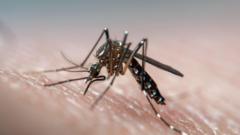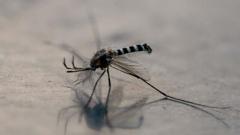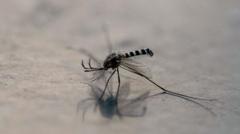Scientists at UC Irvine have engineered male Aedes aegypti mosquitoes to lack the ability to hear, hindering their mating abilities and potentially lowering mosquito populations that transmit deadly viruses like dengue and Zika.
Genetic Mutation Offers Novel Approach to Combat Dengue-Causing Mosquitoes

Genetic Mutation Offers Novel Approach to Combat Dengue-Causing Mosquitoes
Researchers have developed a groundbreaking method to disrupt the mating of dengue-spreading mosquitoes by genetically modifying male insects to become deaf, effectively reducing their reproductive success.
In a surprising twist in the fight against mosquito-borne diseases, scientists have developed a method to alter the mating behaviors of male mosquitoes by rendering them deaf. Researchers at the University of California, Irvine, have found that by disrupting a specific genetic pathway essential for sound perception, they could prevent male mosquitoes from successfully mating with females. This innovative strategy aims to combat diseases like dengue, yellow fever, and Zika, which are spread primarily by female mosquitoes.
Aedes aegypti mosquitoes, known carriers of viruses impacting around 400 million people annually, rely heavily on their auditory senses to locate potential mates during mid-air mating rituals. By making males unable to hear the enticing wingbeats of females — the very sound that typically attracts them — the researchers observed that these altered insects failed to establish any physical contact with females, even after being caged together for three days.
The study, published in the journal PNAS, focused on a critical protein called trpVa, which plays a vital role in the auditory system of these mosquitoes. The manipulated males showed no response to the mating calls of their female counterparts, leading to an “absolute” knockout of their mating efforts, according to the research team.
Experts, including Dr. Joerg Albert of the University of Oldenburg, have acknowledged the potential of targeting mosquito hearing as a promising control tactic, albeit one that requires further research. Without the ability to hear and pursue females, these genetically modified males could dramatically reduce mosquito populations, potentially paving the way to eradicate the diseases they carry. As discussions continue around other strategies like the release of sterile male mosquitoes, the ecological implications of reducing certain mosquito species must also be considered, given their role in the food chain and as pollinators.










